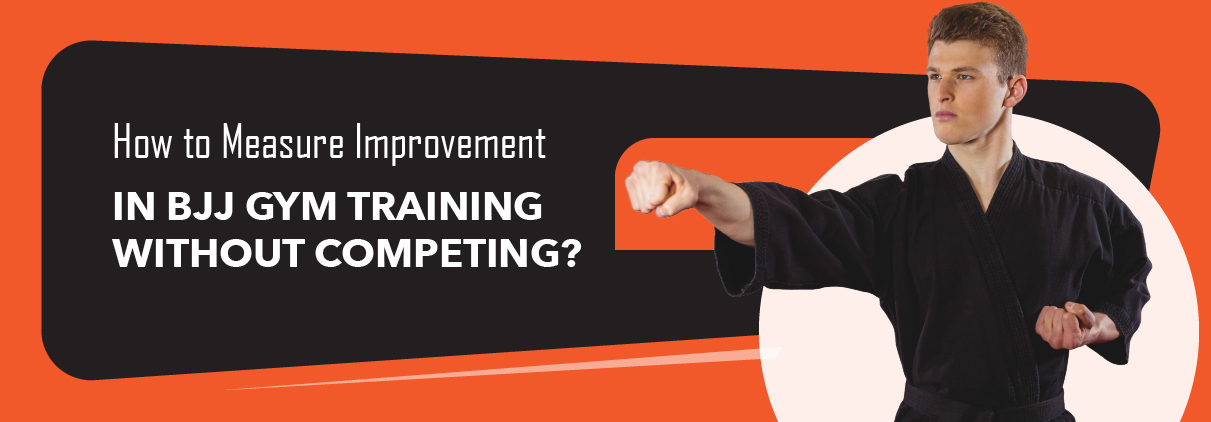How to Measure Improvement in BJJ Gym Training Without Competing?
Brazilian Jiu-Jitsu (BJJ) is an intriguing martial art wherein a person progresses subtly as well as steadily. Improvement is often seen as competition outcomes by most practitioners, but what if you are a non-competitive? For personal preference, injuries, and other forms of living, not everyone will want or be able to step into a tournament mat. Luckily, one’s progress in BJJ cannot be measured by competing against other people alone. The benchmark could be internal, and many significant ways could be used to check progress according to one’s confidence and motivation on the journey. Measure your development in the gym even without stepping into the competition in the following ways:
Control and Escape Tracking in Position
To see improvement in BJJ, the most blatant proof is positional control or escape from dominant positions. For instance, six months ago, you could not find your way out of side control, but today, you can consistently regain guard or stand up. The same applies to how long you can hold the mount or back control against higher belts. It speaks to your growing technical understanding and awareness as well. Try journaling your rolls or mentally keeping track of how many times you get stuck and how many times you escape. Progress in these small battles is often far more meaningful than winning or losing. For more insights, check out 9 Secrets to Faster Progress on the Mat Through BJJ Training.
Intentional and Strategic Rolling
Most rolls are chaotic at first. Most probably, as you improve, your movements become progressively more intentional. You’ll start noticing when you set up a technique, chain submissions, or flow into and out of positions. Instead of randomly reacting, you’ll initiate and dictate the pace. And that “surviving” to “planning” shift is a massive indicator of improvement. Do I have a plan when I roll? Can I identify my opponents’ patterns and change accordingly? Rolling strategically and merely scrambling athletically is deeply satisfying to a more evolved BJJ mind as well as sometimes even more so than tapping someone out.
Offering (and Accepting) Technical Advice
When you can fine-tune the technique of training partners or explain it to beginners, it’s proof of your understanding. It is not only with physical execution but with concept understanding that BJJ is. When coaches or higher belts start to value your opinion or white belts ask for help, then this is an excellent indication of growth in you. Besides this, being open to feedback and how to apply it shows humility and a mindset of being a learner. Communication, both verbal and physical, would be vastly improved with this increased mastery of the art.
Working Around Higher Belts
Even if you don’t submit a higher belt, extending the time you survive, making scrambles, or countering their attempts is evidence of progression. Do you remember the first time you rolled with a purple or brown belt? Did it feel like drowning? Now, do you feel you are defending a little better? Holding your own a little bit longer? That is prima facie evidence of some improvement, both technically and mentally. Improvement isnít necessarily dominating others; it means slowly closing the skill gap. When a higher belt begins to employ more advanced techniques to catch you, that means they have to respect your game because you are forcing them to.
Mental Toughness and Emotional Growth
BJJ is equally a mental and physical game. Improvement is defined as maintaining calmness through pressure, breathing through discomfort, and recovering from hard rolls. If you don’t get upset after being tapped out anymore or have stopped making constant comparisons with other students, you are on your way to developing a resilient mindset. That emotional maturity is key to sustaining your BJJ career. Finding joy in the process, feeling okay when plateauing, and trusting your journey are marked examples of advancement measured in leaps and bounds that no medal can show. They will keep you in the game with a positive mindset for even longer.
The Final Thoughts
Improvements in Brazilian jiu-jitsu can be measured in competitions, but the absence of competition can often matter the most. Not everyone trains to win gold medals, and that is okay. Your growth in BJJ can be surely felt, tracked, and celebrated for so many other reasons: for learning escapes, for rolling mindfully, for helping others, and for showing heart on the mat. At Octagon MMA Dallas, we believe that consistent training, regular reflection, and trusting the process are what truly shape a stronger, more resilient version of yourself—on and off the mats. Keep going. Your journey matters.
